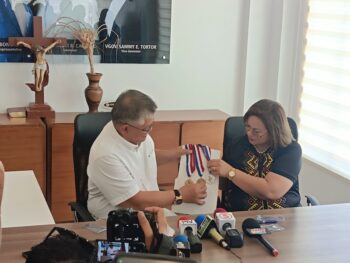Sulaik said a total of 275 BnB sets of drugs were given to the ARMM in the middle part of last year but only 248 are operational as of now because operators have to be trained first before the BnBs are set up.
Launched by President Gloria Arroyo in 2001, the BnB program is supposed to cater to the poor by selling very cheap medicines.
But Sulaik said they got the drugs from the Department of Health national office only in the middle part of last year, and started training operators by the third quarter.
A VERA Files report released today, titled “Botika ng Barangay not in poorest places” said that as of January 2009, there were 12,341 BnBs, compared to 427 in 2003 but the program “covers only half of the country’s 42,000 barangays and suffers from poor implementation and conflicting priorities from top to bottom. As a result, the BnB program has wasted scarce resources while denying health care services to the poorest areas it was meant to serve.”
The report noted that in the ARMM, “aside from having the least number of hospitals and barangay health centers, has the smallest number of BnB outlets, numbering 78 as of last January.
The report also said “all the BnB outlets in ARMM are in Maguindanao, leaving the provinces of Basilan, Sulu, Lanao del Sur and Tawi-tawi without any BnB drugstore.”
Sulaik said they have “more than 100” BnBs in Maguindanao.
Ideally, he said, there should be one BnB per barangay. ARMM has 2,504 barangays in its five member-provinces.
ARMM comprises the provinces of Maguindanao, Basilan, Sulu, Tawi-tawi and Lanao del Sur and the cities of Marawi and Lamitan. (MindaNews)
